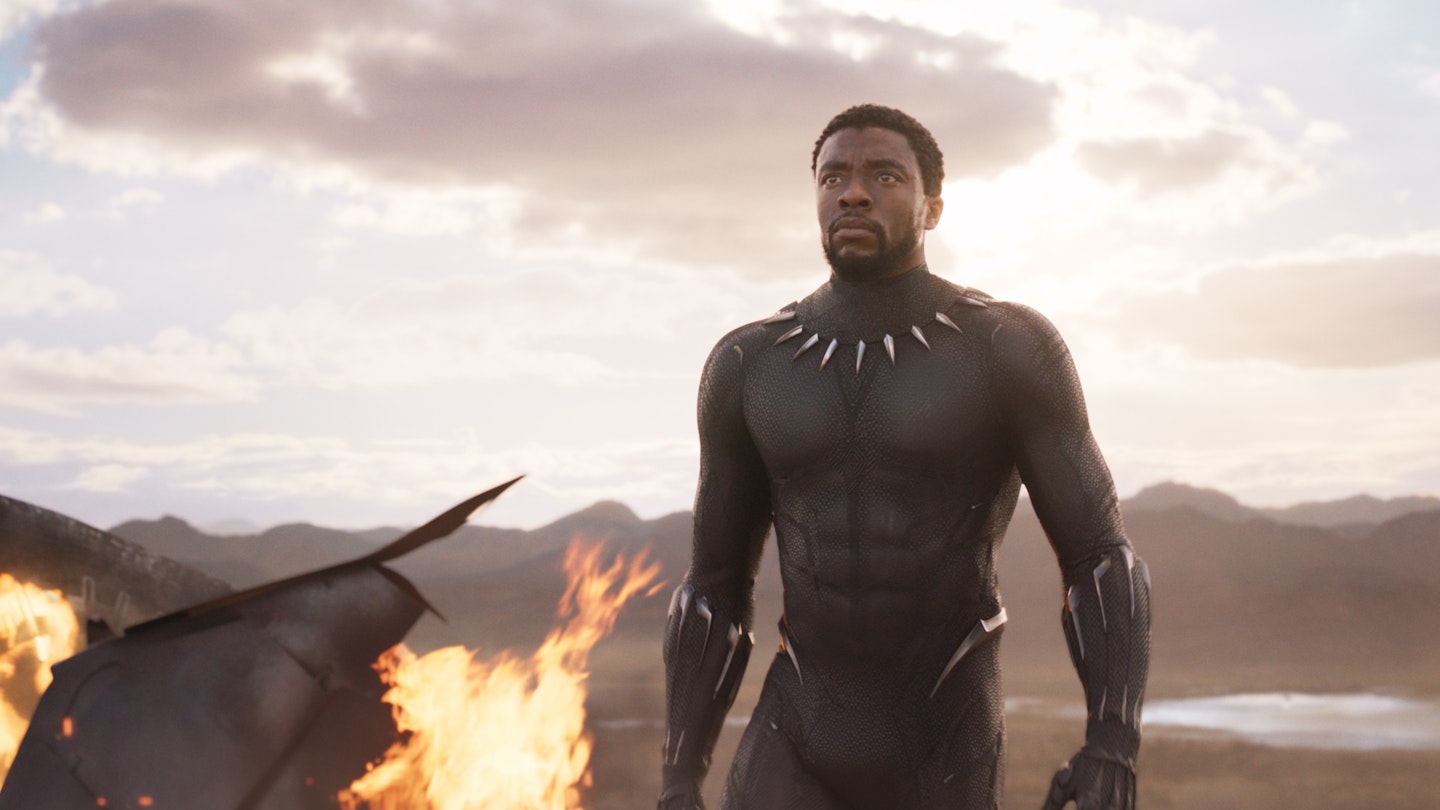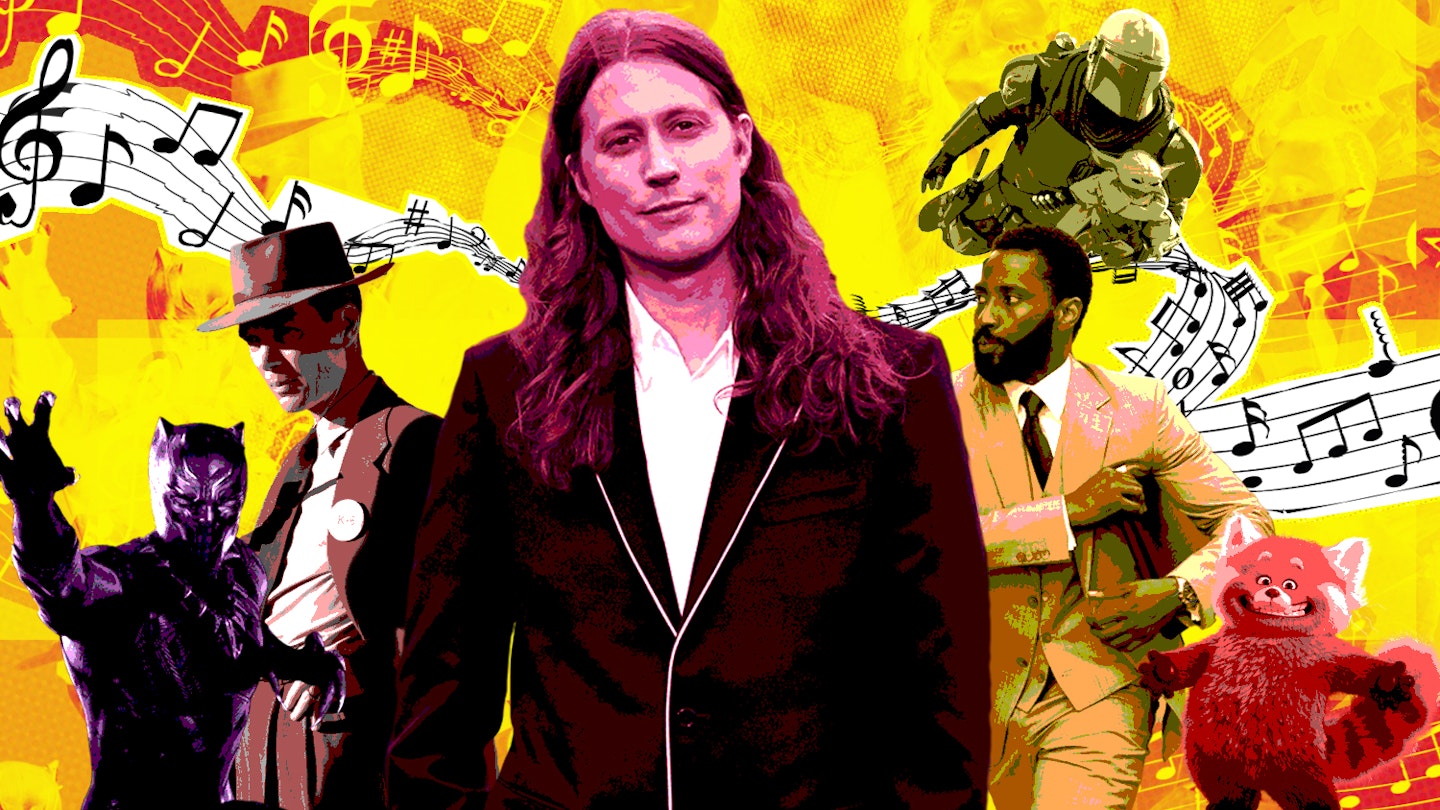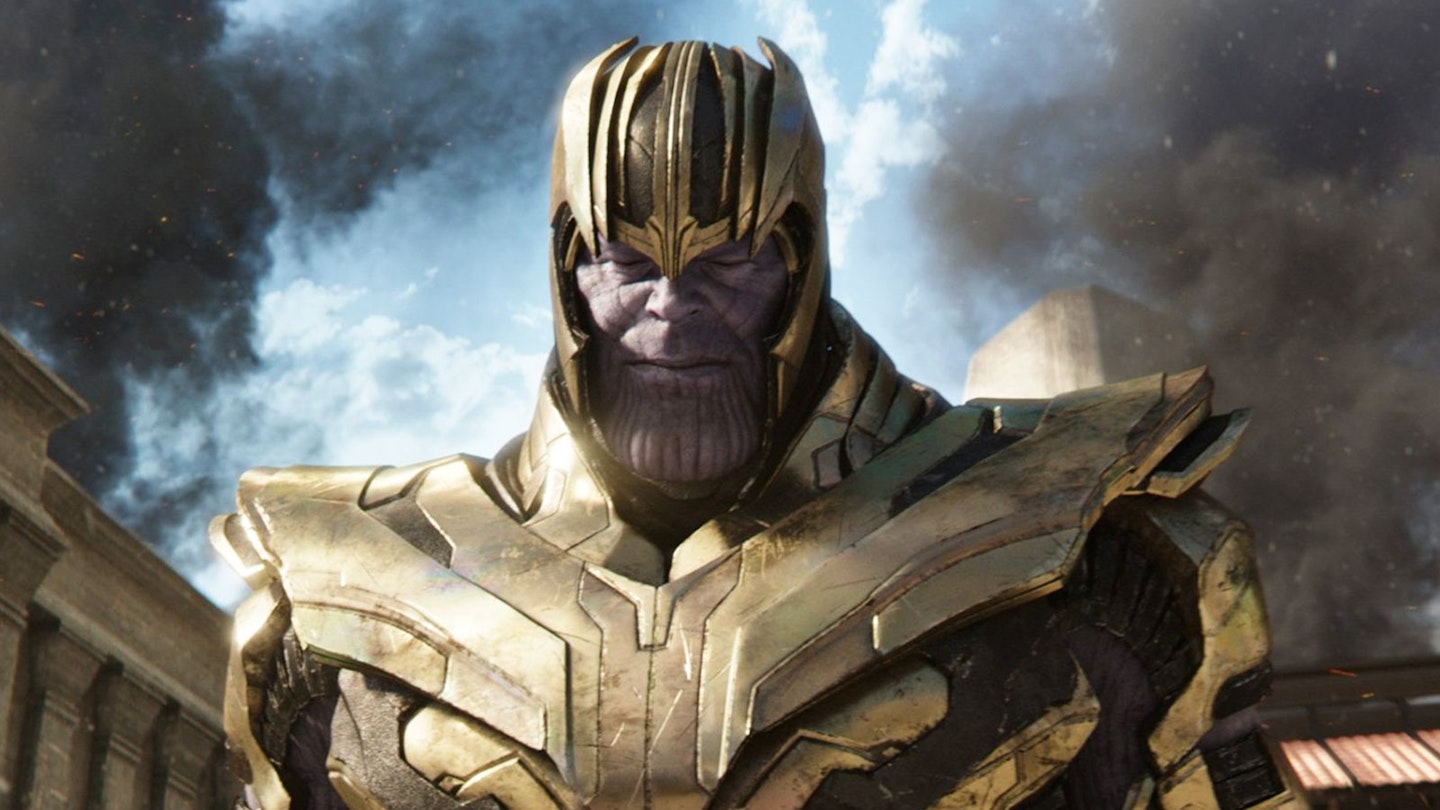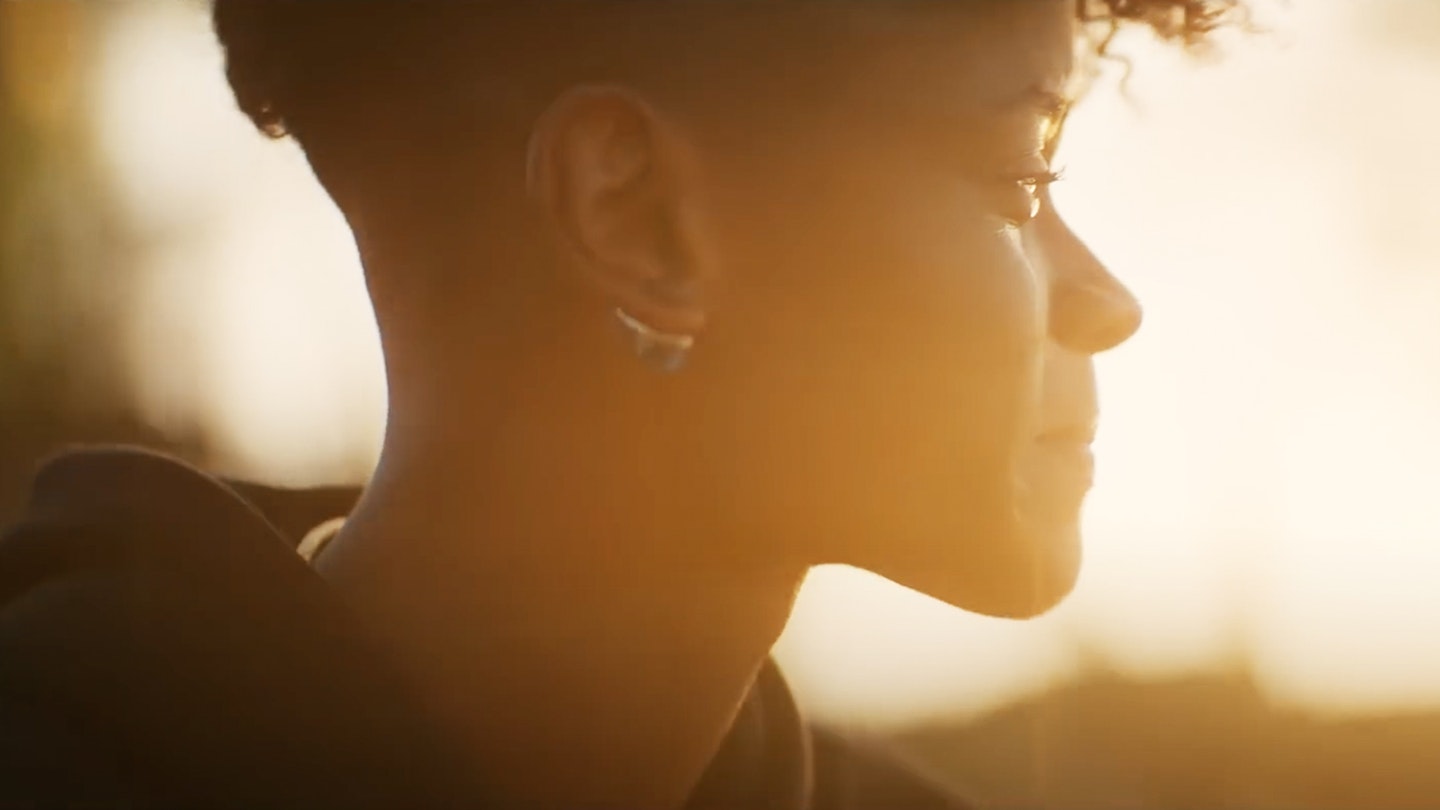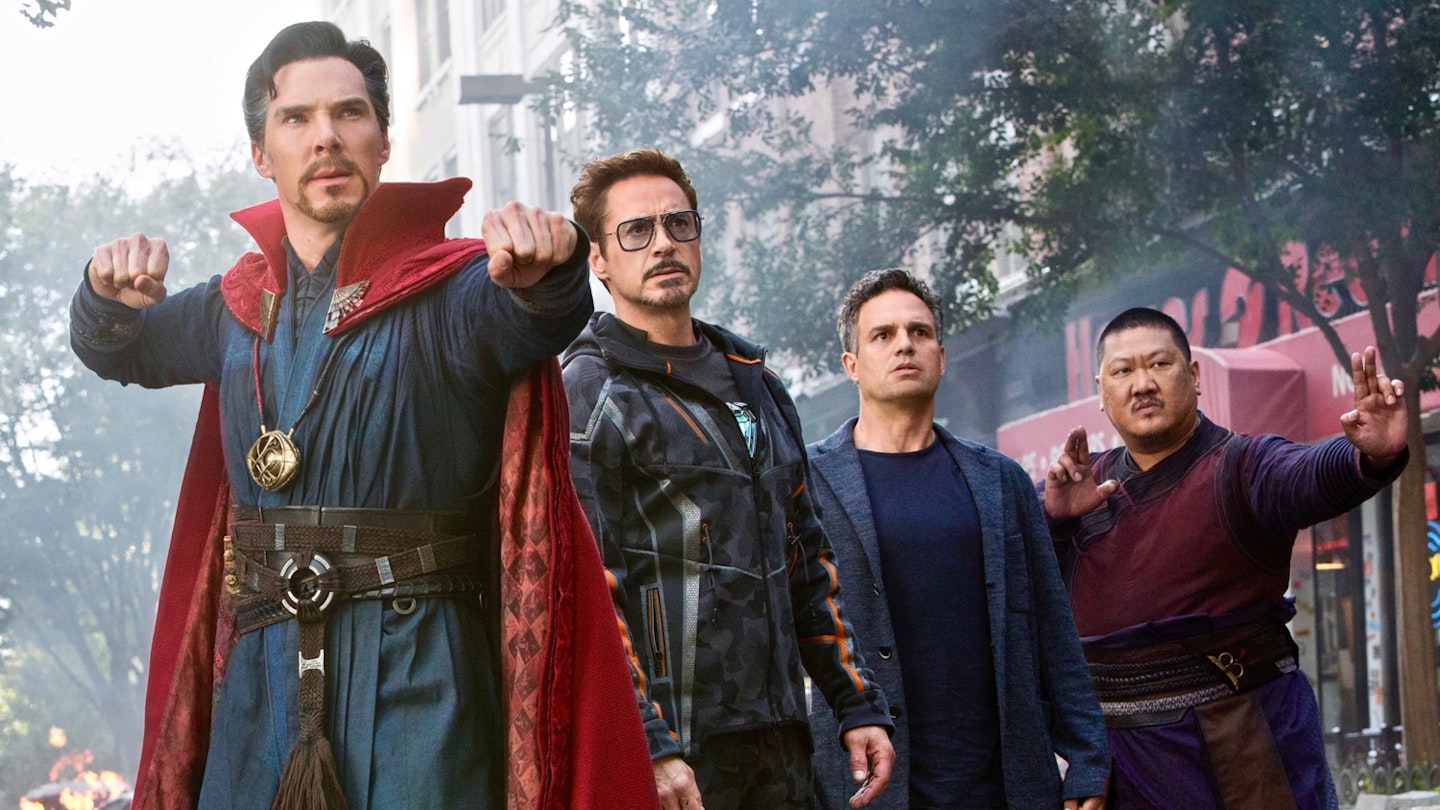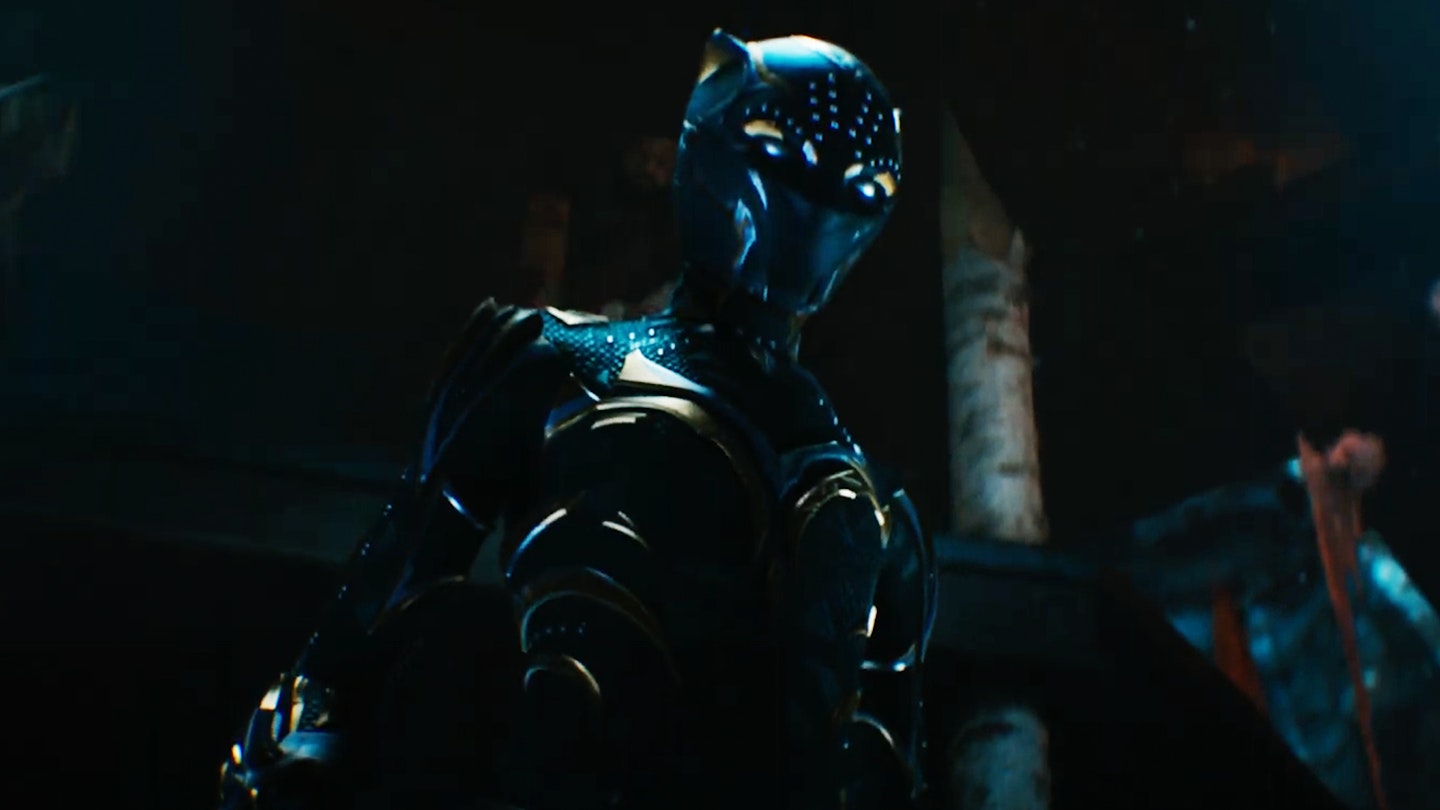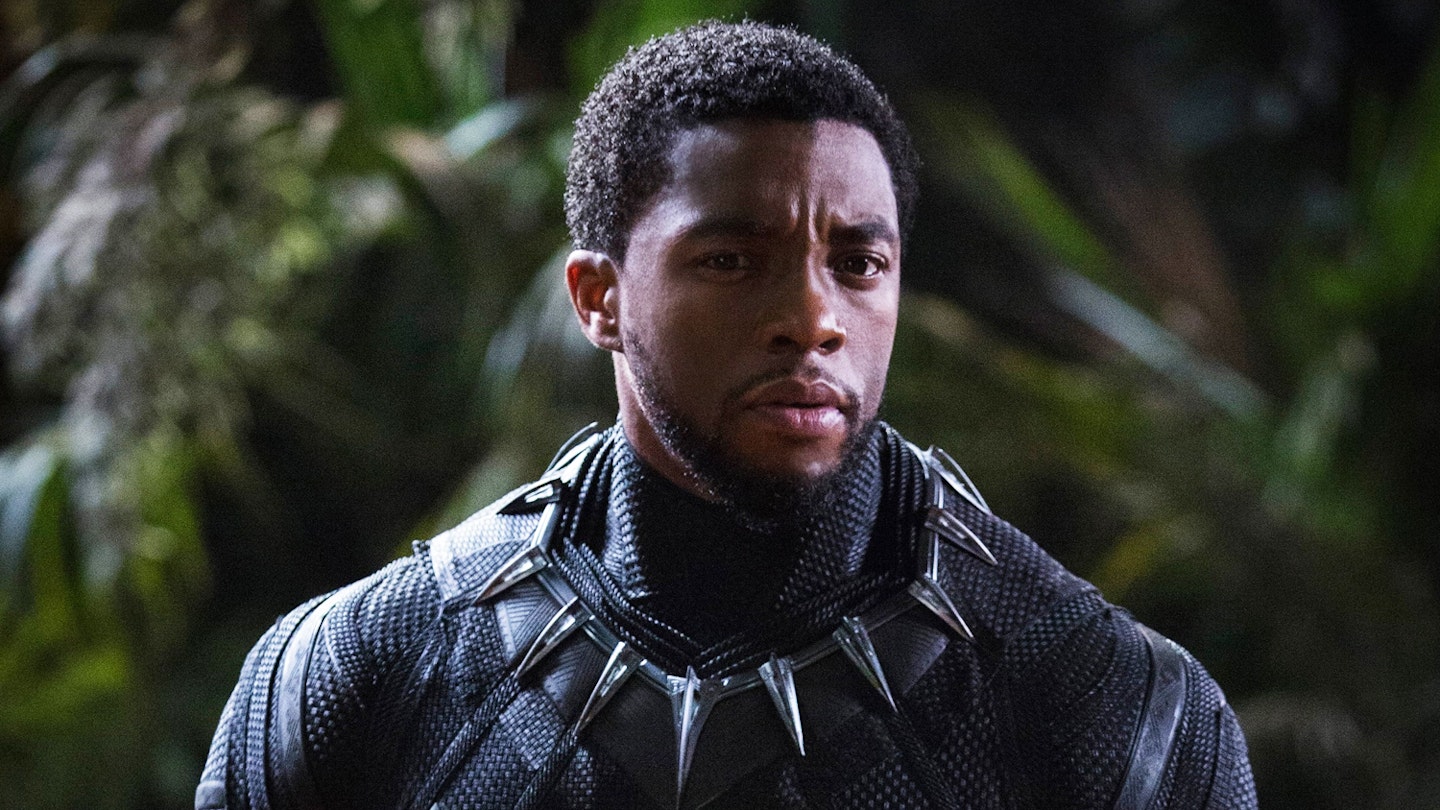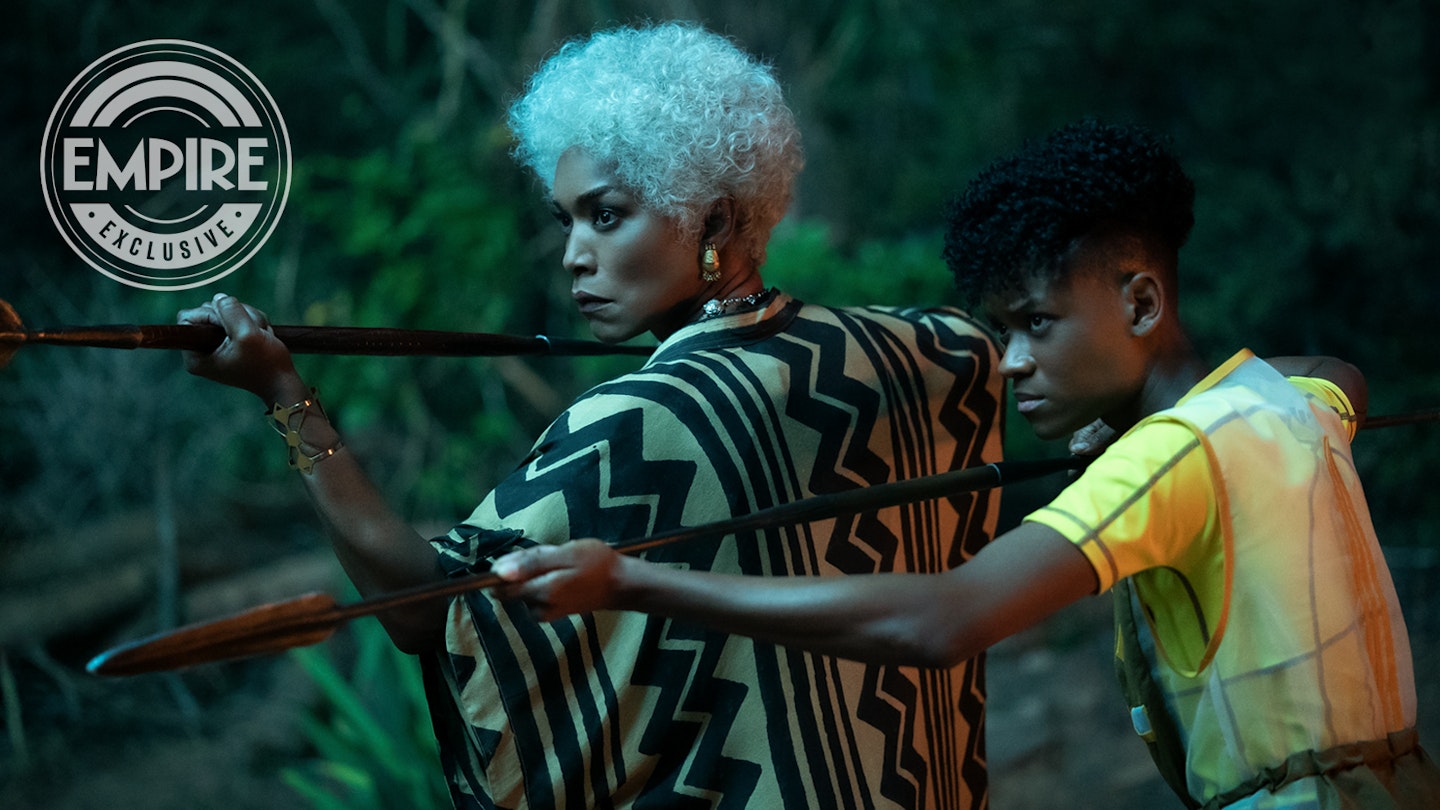To say that Ryan Coogler’s films are expanding in scope and scale – more ambitious, audacious and pyrotechnically dazzling each time – would be to deal in wild understatement. After the wrenching, real-time intimacy of his debut, Fruitvale Station, and the franchise-jolting, bruised adrenalin hit of Creed, we now have Black Panther: a giddily enjoyable, convention-bucking 134-minute epic that somehow manages to simultaneously be a comic-book blockbuster, a pulsating espionage thriller and an Afro-futurist family saga. That it is only Coogler’s third film makes it all the more impressive.
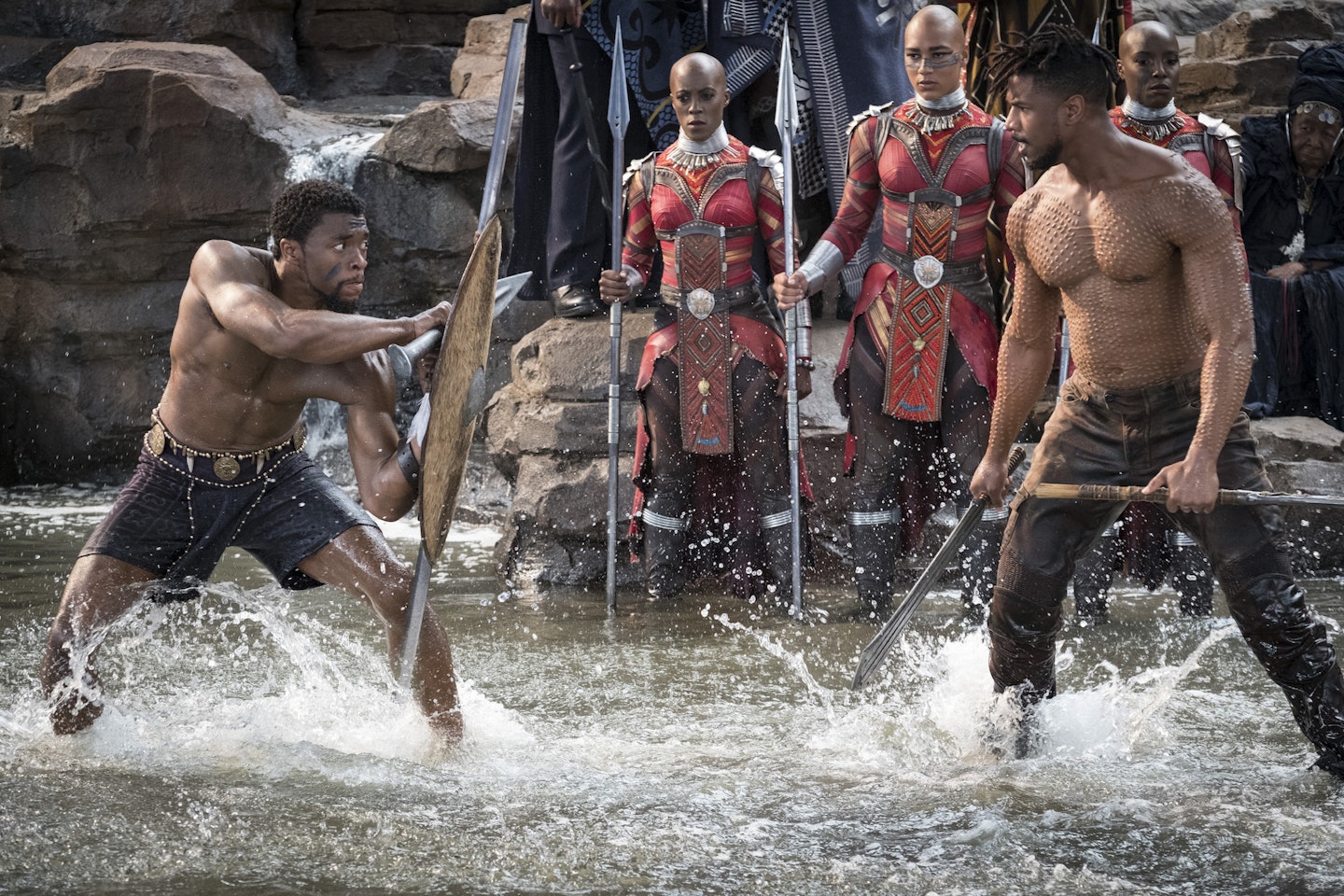
We open in the past, on a vast starlit sky, with king T’Chaka (John Kani) telling a young T’Challa (and us) about the vibranium meteorite that crashed into the country and went on to seal its future as a secretive, technological utopia. Next, we jump to Oakland, California, in 1992 – the birthplace of both Coogler and, in an important thematic nod, the actual Black Panther Party – for a prologue that establishes the notion of Wakandan spies, identifiable by hidden, glowing blue tattoos on their lower lips.
It’s an important scene, not just because of the crucial plot seeds it sows, but also because of the contrast it offers between the outside world – all Public Enemy posters and makeshift basketball hoops – and Wakanda, a lush fantasia that’s every bit as otherworldly as Asgard. After a present-day stop-off in Nigeria (where a Panther-suited T’Challa unites with Nakia, Lupita Nyong’o’s undercover agent, and saves a group of kidnapped girls from Boko Haram-like soldiers), we finally get the full hit, swooping down into the vibranium-blessed hermit nation.
Watch out for Gurira topping Doctor Strange’s ‘cape-fu’ with a spot of ‘wigjitsu’.
These scenes around T’Challa’s coronation vibrantly establish the customs of his trippy sci-fi kingdom – the futurist spires and shirtless ritual combat, the brightly attired tribal leaders and power-giving purple plants – but they do also foster a tone that feels awkwardly caught between Marvel’s trademark quippy interplay and the rapt wonder of a djembe-banging broadcast from the Wakandan Tourist Board. Our violent London-set introduction to villains Erik Killmonger (Jordan) and Boer-accented, cannon-armed bruiser Ulysses Klaue (Serkis, out of the mo-cap suit and loving it) feels similarly off.
Thank the Panther God, then, for Letitia Wright as T’Chala’s impish, tech-savvy little sister, Shuri. From the moment the British actress arrives – radiating charisma and cheek as the Q to her brother’s 007 – Black Panther finds its feet and its comic groove. T’Chala, Nakia and Okoye (Danai Gurira, playing the enjoyably tough head of the all-female royal guard) embark on an undercover mission to capture Klaue at a South Korean casino. It brings the Wakandans into the orbit of the CIA’s Everett K. Ross (Martin Freeman) and sets up an action sequence that starts with a kinetically filmed brawl – watch out for Gurira topping Doctor Strange’s ‘cape-fu’ with a spot of ‘wigjitsu’ – and ends in a show-stopping, masterfully staged car chase through ravaged neon-lit streets.
And the action only gets more thrilling as Killmonger’s plan – a distantly rational, if ultimately megalomaniacal, desire to share Wakanda’s technological riches with the globe’s struggling black communities – takes shape, via a brutal, heart-in-mouth fight with T’Challa atop a rushing waterfall. Performance-wise, Jordan and Boseman are well matched, with the former’s feral, American swagger contrasted by the latter’s watchful nobility and pained, expressive eyes.
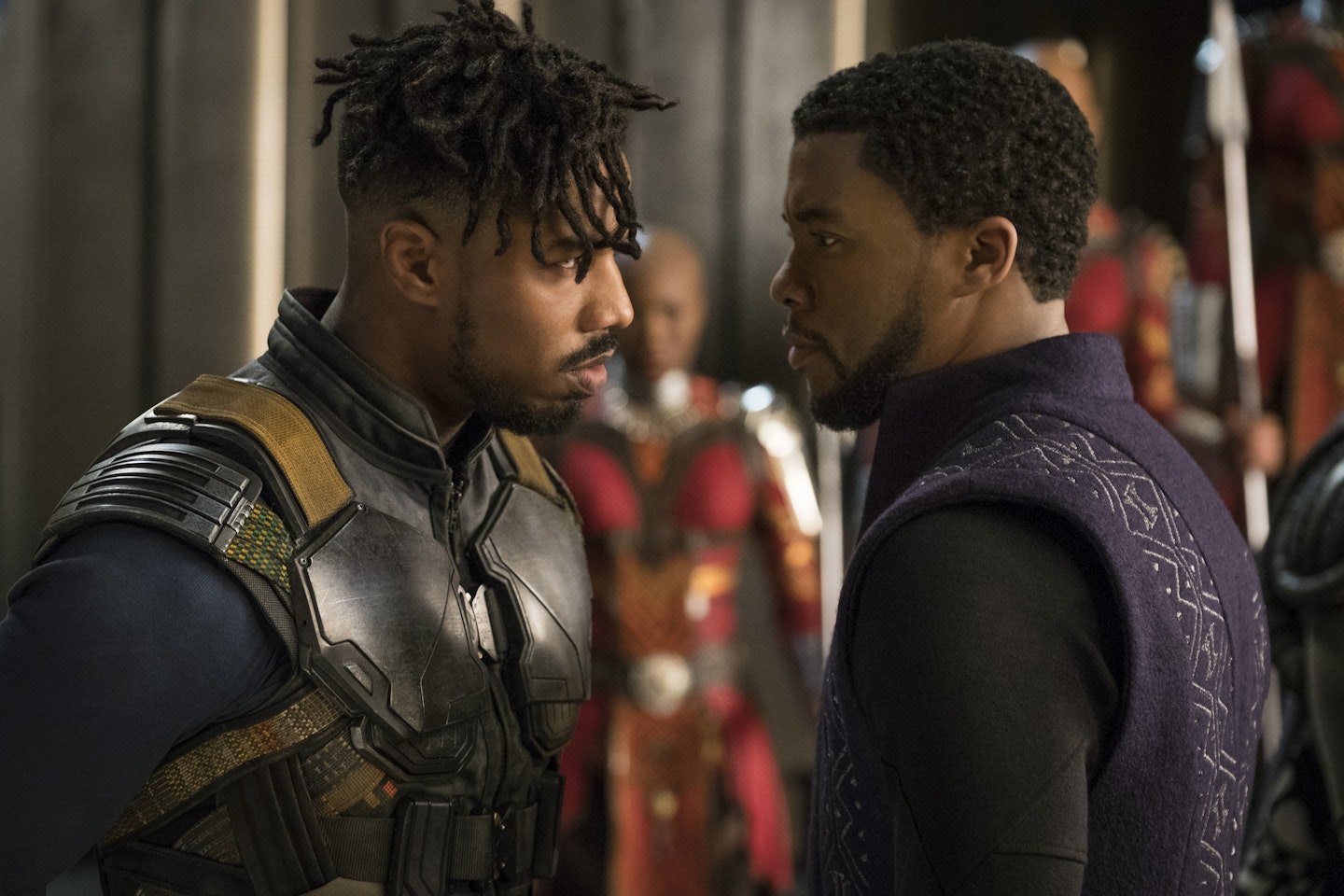
They’re ably backed throughout by a ridiculously deep bench of award-nominated actors – Daniel Kaluuya as a conflicted tribal elder, Angela Bassett’s Queen Mother Ramonda, Forest Whitaker as shaman figure Zuri – all rising to the occasion of what is essentially a summit of black talent. But one of Black Panther’s greatest triumphs is to make you forget the barrier-breaking significance of its mere existence. By the time the climactic battle has broken out – set a world away from the customary razed metropolis of modern comic-book films – you’re too busy marvelling at its bottomless invention, its big-hearted verve, to truly consider the game-changing revolution playing out in front of you. Long live the king.
